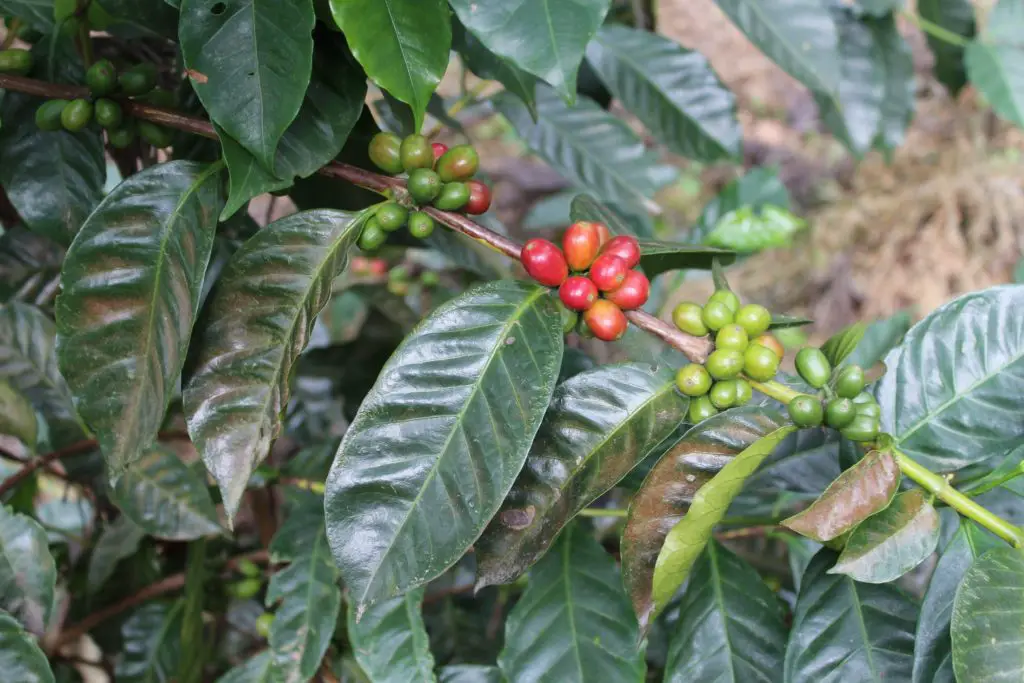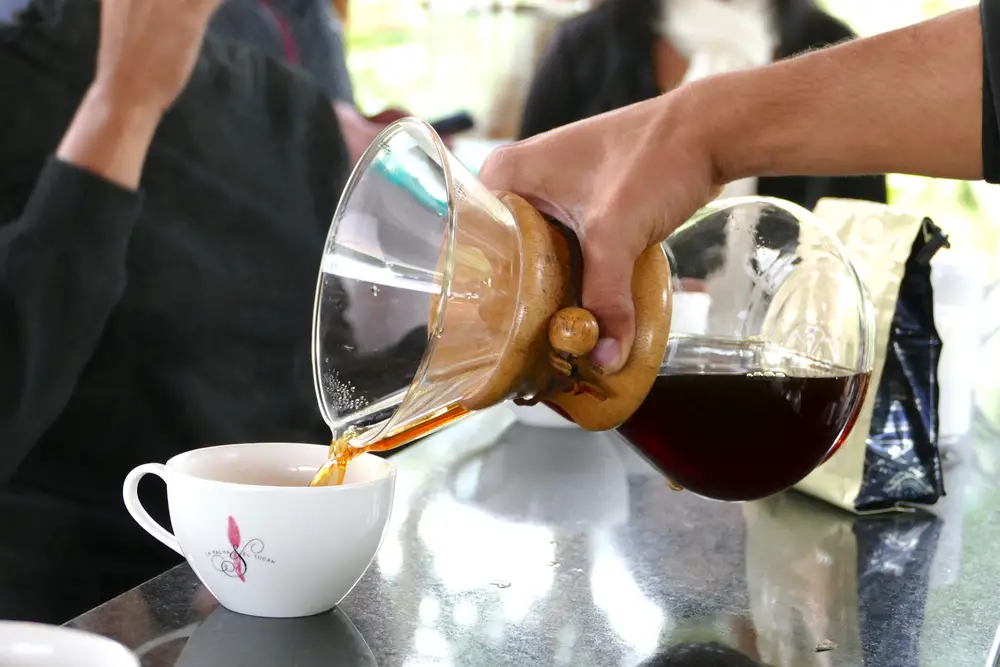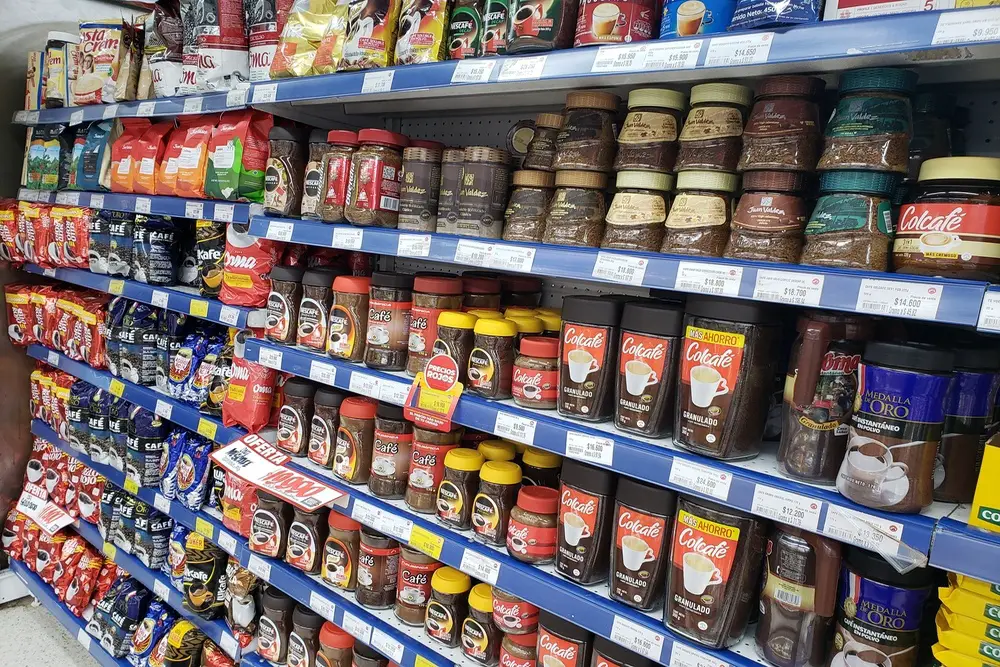You may already know that coffee is the second most consumed beverage in the world. However, there are some coffees that seem very exotic because of their origin, price and special characteristics. Kopi Luwak coffee, also known as civet coffee is one of the most expensive coffees in the world. Here we explain why this is so.
Table of Contents
What is Kopi Luwak coffee and why is it so exotic?
First, we need to talk about the civet. It is an animal that is involved in the production of this coffee. The Asian palm civet is an omnivorous mammal that is found in different regions of India, Africa, South China, and Indochina. This mammal is about 120-130 cm (47-51 inches) long and has a long tail that is half of its length. It weighs about 3.2 kg (7 pounds) and looks very similar to a raccoon or cat with its black and gray colors.
This animal usually lives in the coffee plantations of Indonesia, the country of origin of this exotic coffee. The civet feeds on some fruits, flowers, insects, and ripe coffee fruits.
The mammal swallows the ripe coffee beans. Only the outer part of the coffee (the pulp) is processed in the intestine, while the seed (the bean) undergoes some chemical changes due to enzymes in the intestine of the civet cat. The animal then excretes the half-digested coffee beans with its feces.
This is where Kopi Luwak or civet coffee gets its name. Kopi means coffee and luwak means civet in Indonesian.
The proteins involved are said to give the coffee more flavor and take away the bitterness. Coffee farmers collect the feces by hand and separate the coffee beans, which are then processed into one of the best and most expensive coffees in the world.
It should be noted that Kopi Luwak coffee is neither a variety nor a type of coffee. Rather, it is a production method that is very different from the traditional one. And that is exactly what makes it so special. In addition, the civet apparently only eats the fruit that is ripe at the time. This is, among other things, the reason why it is a very exquisite coffee with very good taste.
Kopi Luwak is not grown all over the world. Because of its origin, it is mostly grown in Indonesia, the Philippines, and Vietnam and is not mass-produced.
Only about 500 kilos are produced per year, which makes it special and expensive. One of the reasons for the low production is that the civet cat only consumes about 25 grams of cherries per day, so it is a slow producer.
History of Kopi Luwak Coffee
Although there is not much data or information about its history, its origin dates back to the time when coffee cultivation was introduced in Indonesia by the Dutch colonialists. They brought some coffee seeds from Yemen and started the first plantations. It was not until the 19th century that some farmers realized that civets were coming to coffee plantations to eat the best beans.
At first, they were considered a pest because they ate away farmers’ best beans. However, this changed when the seeds were found in the feces and processed. It was discovered that for some reason these seeds tasted better. Since then, the production of Kopi Luwak has increased.
How is it produced?
When the civet eats the coffee beans, they come into contact with enzymes in the digestive tract. These enzymes react with the coffee and break down the proteins that create the bitter taste. They also help enhance the sweet flavors. This process makes the aroma and flavor of the coffee more intense.
After collecting the excrement of the civet cat, coffee farmers wash the coffee beans to clean them from the excrement. After washing, the beans are treated as usual. Many people fear that this coffee may taste or smell like animal excrement. However, the normal coffee process does not leave any residue and the high quality and hygiene of the coffee are guaranteed.
After washing the beans, the outer part of the coffee must be removed so the beans can be roasted. Finally, the coffee is ground and is ready to be marketed.
How are the animals treated?
This coffee is very controversial because of the treatment of the civets. There are some companies that keep the civets in open fields and in complete freedom, and others that do not. Because they are so exotic, many companies keep the civets in very small cages in poor conditions and force them to eat a certain amount of cherries per month that would take them up to a year to eat if they were not kept in captivity.
Under these conditions, civets have a very high mortality rate. According to the organization People for the Ethical Treatment of Animals (PETA), many families in Indonesia keep 10 to 20 civets in cages.
The demand and cost of this coffee cause many farms to keep civets in confined spaces to force-feed them. Therefore, it is important for consumers to ensure that the coffee in question does not come from a farm with captive civets before buying it.
Currently, there is little oversight of the industry that keeps civets in captivity. There are also no certifications that can guarantee that civets are 100% free-range. However, the organization World Animal Protection works to protect caged mammals.
Things to know about Kopi Luwak
As mentioned earlier, tasting Kopi Luwak is not that easy. Therefore, it is important that you make some considerations before spending a lot of money.
Let’s take a look at some of the most important things to consider when buying Kopi Luwak:
Notes of flavor:
This exotic coffee has a strong aroma and flavor that lingers on the palate for a long time. However, this type of coffee is not a variety, but a form of production. Therefore, there is no single taste, but it depends on the variety consumed by the Asian palm civet, as well as the roasting and processing. As a rule, they are Arabica coffee.
In general, they can appear flavors of caramel, chocolate, and vanilla, with a barely perceptible bitterness and a slightly earthy texture. In the end, a sweet and pleasant taste remains on the palate.
Degree of roast:
This coffee usually has a light to medium roast level.
Price:
A kilo of this coffee can cost around 1,000 USD. If you want to enjoy this coffee in a store, a cup can cost between 70 and 90 USD.
Outside Indonesia, this coffee is mostly consumed in the United States and some parts of Europe. Nowadays, however, its consumption has spread all over the world.
In some coffee-growing areas of Indonesia, the price of a cup of coffee can be much cheaper. About 5 US dollars. Similarly, a kilo of Kopi Luwak coffee is quite a bit cheaper in Indonesia.
Imitations:
Because of the high price, the lengthy production process, and the great controversy over the treatment of civets, there are now several companies that replicate the digestive system of civets in laboratories so as not to involve the animals in the process. Afineur is one of the first companies to succeed in recreating the taste of Kopi Luwak in the laboratory and obtain a patent for this product.
The University of Florida has also developed several tests and has already obtained a patent to produce this coffee in the laboratory. Therefore, when buying, it is important to pay attention to whether you want to buy the original Kopi Luwak or one made in the laboratory, which is very similar in taste to the original.
Where can you buy Kopi Luwak coffee?
Getting Kopi Luwak is not so easy. Products are often out of stock. However, here are three of the best Kopi Luwak coffees.
Keep in mind that there is no official certification yet for any civet coffee that can 100% guarantee you that the civets are living in the wild and without any forced treatment.
Sumatera Lintong Coffee Kopi Luwak coffee
This coffee comes from Sumatra, Indonesia. It is made from ground Kopi Luwak Arabica coffee and costs about $26 USD per 100g.
The company’s civet can be found in the wild and all production and harvesting practices are sustainable. This company is composed of small farmers from North Sumatra.
This coffee is very aromatic, with a complex flavor and profile without being bitter. Customers who have tried this coffee say that it certainly tastes better than the best conventional Arabica coffee.
Wild Gayo Luwak Nisantara Coffee
Another brand known for producing 100% authentic coffee. The 100 g bag of Wild Gayo Luwak coffee beans costs around 25 USD.
This coffee comes from Sumatra. It has a medium roast and is processed by experienced roasters in Indonesia. It comes from non-captive civets. The coffee that these civets eat is called Gayo, one of the best coffees in Indonesia. It is grown on farms 1,400 meters above sea level and is characterized by mild acidity and fruity, floral notes.
Customers who have tried it say it has a very strong and pleasant aroma with a mild flavor that is absolutely worth its price.
Kopi Luwak Direct Coffee
This coffee is made in the Philippines, but it is shipped worldwide. Shipping can take 6 to 20 days. A 100 g bag of this coffee costs $79 USD.
This coffee has a medium roast that best brings out its unique flavors. However, the brand gives you the option to choose the degree of roast you prefer. The producer recommends using 91 °C to 96 °C (196-205 °F) warm water.
This coffee is 100% organic and no artificial fertilizers are used in its cultivation. This is a great advantage both for human consumption and for the civets. These coffee crops are located in the middle of the habitats of the Philippine civets. There are about 2,800 wild civets living in this habitat.
There is also a desire to work locally with the B’laan tribe, who traditionally live in this region.
Other exotic coffees
There are more products in this range of expensive coffees with rather strange origins – don’t miss them!
This coffee is not for all tastes or for all people. Just like any place or exotic food, its public is more selected and must comply with certain characteristics.
If you decide to try it, make sure it is a company that does not mistreat the civets. Supporting this type of trade is not fair to anyone. But trying this free civet coffee may totally change your perception of the coffee you have tasted so far.



